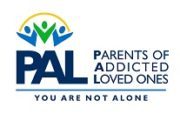In my 25 years of working with parents of those suffering from substance use disorder, few concepts or perspectives stand out as much as “The Three Cs”. The concept comes from the Al-Anon Family Groups, but the idea has spread to countless other family recovery meetings. The Three Cs: you didn’t Cause it, you can’t Control it, and you can’t Cure it. I have attended an abundance of meetings where parents (who are now full of hope) are enthusiastically sharing this idea and the good news it brings. As they share their own story with the newcomers, specifically, they recount the change in perspective and the freedom this saying brings.
We may wonder why parents who have been attending meetings are so excited to share this concept with newcomers. Why are The Three Cs a regular discussion topic in family recovery meetings and counseling sessions? Why is this concept so valued by members both brand new to recovery and those who have been in recovery for many years?
I believe it is because it sums up a parent’s experience so well; it can bring such an impactful and prolific change to a parent’s view of addiction.
Let’s take a deeper look at what we often believe Caused the problem.
Many parents operate under a false belief that influences their responses to their loved one and forms their self-worth as a parent. This false belief is almost always that it is something they are doing, did, or did not do that caused their child to become addicted to substances. Having this belief leads them to agonize over the little things they said or did in the past, to freeze when decisions need to be made (for fear that they will make things worse), to search for someone else to blame, and to remain in denial of the problem (believing that if they accept the problem, they are admitting that they are a failure as a parent). Sometimes this leads to ignoring blatant evidence to the contrary such as having raised other children who did not become addicted to substances or the fact that addiction runs in the family.
The next false belief is built from the first one. If they believe that they created the problem, then it is within their power to solve (or Control) the problem. This leads to the next set of unhealthy responses, decisions, and actions. At this point we see parents trying everything they can think of to control the problem. Actions such as shielding their loved one from consequences, lecturing, yelling, bribing, manipulating, using guilt, and anything else they think will bring their loved one under control. This is by no means an exhaustive list. Parents often dedicate tremendous amounts of time, energy, and creativity trying to control substance use disorder. Often at the cost of their own sanity, peace, relationships, careers, retirement, and relationships with their other children.
Of course, the problem is that trying to control a person with substance use disorder is like trying to control the weather, it doesn’t happen. We’d never try to control the weather because we know we’d fail, what would change if we knew and believed that we were no more likely to control our loved ones substance use disorder. Belief dictates action.
The last part of this saying is that we can’t Cure it. If we accept the disease model premise for alcoholism/substance use disorder we must accept that we cannot cure it or treat it for any other person. Alcoholics Anonymous defines alcoholism as an allergy of the body and an obsession of the mind for which the treatment is a spiritual experience. There are other takes on both the disease and treatments, but we will use this one for now.
Knowing all of this, we can see why The Three Cs provide so much relief for parents when they hear this new perspective. If they can learn to believe differently about the nature of the disease and their role in it with their child, they can start to change their own behavior. The constant worry will dissipate, and the parent will no longer feel like a failure. They will know with confidence that their child must travel their own journey and face their own adversity in life. Once this new belief sets in, the parent can become a loving and enthusiastic supporter without feeling the burden of trying to fix everything.
It is clear why this is such a tremendous weight lifted and why we are likely to hear at most family recovery meetings the simple and profound statement “You didn’t Cause it, you can’t Control it, and you can’t Cure it.”
Hope is the belief that we can have something better. When our perspective changes, we can have hope. Because of this hope, our decisions and actions will begin to reflect this change of direction. This change of direction leads us down the path of peace and freedom.
Questions to meditate on or discuss:
Do I believe I caused my child’s substance use disorder?
Do I believe I can control their substance use disorder?
Do I believe I (or anyone else) can cure them?
If I accept The Three Cs as true, how will I act differently?
Josh Azevedo is a guest blogger for PAL and is the Executive Director at The Pathway Program, https://thepathwayprogram.com


Comments are closed.